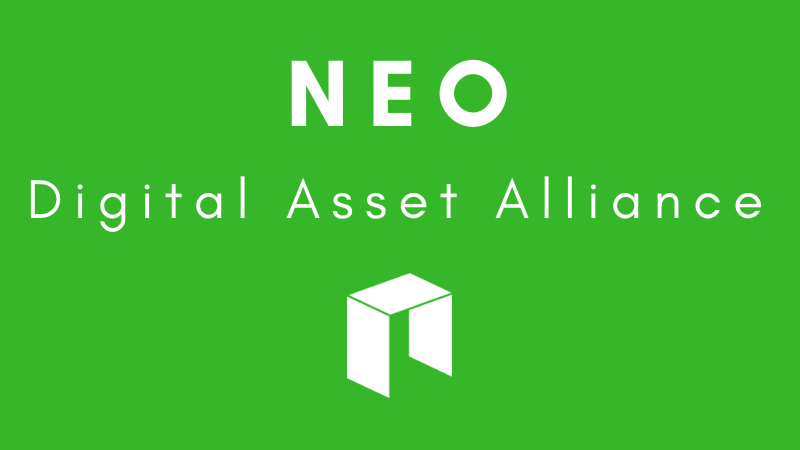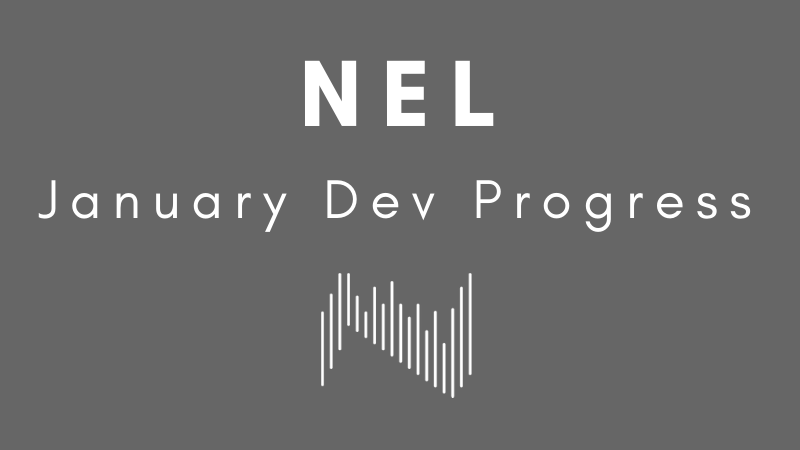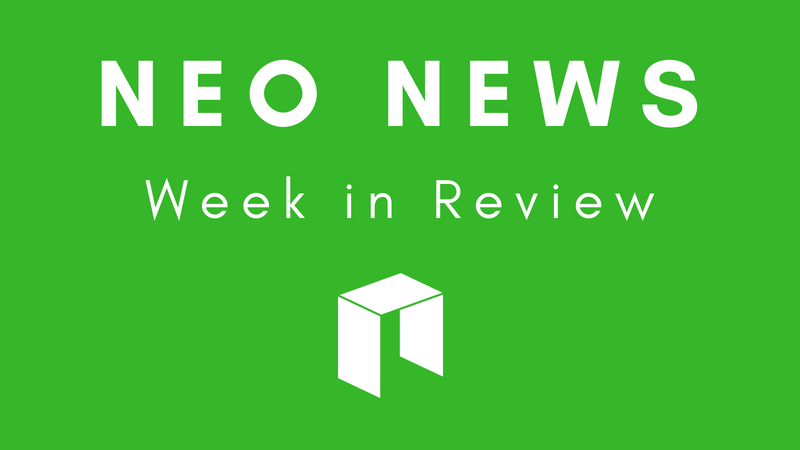
NEO Global Development (NGD) has recently begun taking steps to prepare for an economy where securities and blockchain merge. It has established the tentatively named Digital Asset Alliance (DAA), a consortium of participants from various industries including liquidity providers, KYC/AML providers, issuance platforms, law firms, and projects. The members of the DAA are primarily located in the United States, Europe, and Asia.
NEO News Today recently spoke with NGD global business development manager, Tamar Salant, who shared insights regarding NEO’s approach to securities on the blockchain and the purpose of the DAA.
Securities as Digital Assets
Salant, who is one of the driving forces behind the DAA initiative, is quick to point out that securities are not a new phenomena, and that NGD is taking a pragmatic approach to an area of growing interest:
“I think when we’re looking at securities, a lot of people like to say ‘security tokens,’ and it’s creating a lot of hype and it’s creating a lot of these rumors about how this will bring back the bull market. But I think we’re looking at it from a more mature perspective. These securities are something that have always been around, and using digitized formats for these securities instead of a piece of paper or an excel sheet, but using a unique digital signature to ‘upload’ the securities to a blockchain is just making sure the process is being done in a more efficient, transparent and smoother way – cutting away middlemen and just making sure that things are executed in the right format.”
In fact, as a personal preference, Salant doesn’t even like to use the term “security token.” A security token can be defined as a cryptographic digital asset that reflects “an investment in things that do not typically trade on liquid exchanges.” Assets that can be represented as a security token include stock dividends, real estate, art, public and private equities, debt, and other commodities like precious metals and gems.
As such, the term “digital assets” feels more appropriate to the team, which naturally finds its place among the three pillars of NEO, namely: digital identity, smart contracts, and digital assets.
Understanding the law
To identify whether an asset is a security, it must be deemed an investment contract. An investment contract enacts when “a person invests his money in a common enterprise and is led to expect profits solely from the efforts of the promoter or a third party.”
Issuers of securities are held accountable for their actions by federal regulators in accordance with security laws. It is these securities laws, initially established to protect investors from fraud, that have landed blockchain projects in hot water for the execution of token sales deemed to be unregistered securities. Consequences can result in fines, incarceration, probation, or restitution.
Understanding the nuanced security laws across different jurisdictions and assets classes is the primary purpose of the DAA. As many governing bodies are still working on defining laws pertaining to different blockchain technologies, groups looking to work with digitized securities are stuck waiting for the law to play catch up. The DAA is taking a front foot approach to this issue by bringing together a diverse group of parties from within what Salant calls the “supply chain of security tokens”:
“Our virtual round table is a gathering of people from all across the globe, whether its issuance platforms or projects, or law firms, or liquidity providers, or AML/KYC providers – we’re getting a sense of what everyone is looking at. And by kind of connecting the dots, if everyone is talking about one, two, three, it means its important. And because this is something everyone is looking at based on compliance laws and jurisdictional laws, and this is something that is relevant to all, then once we can implement that, and translate that into the code and have it automated, it’s much, much easier, and much more efficient for everyone.”
Some of the companies participating in the DAA include Vertalo (a Registry and compliance solutions company), Globocap (a UK based digital platform that tokenizes illiquid assets), Liquefy (Hong Kong based end to end security issuance, distribution and trading platform), DLx (US-based law firm focusing on clients and matters involving the use of Blockchain technology and cryptocurrencies), and BetterAlternatives (A boutique alternative investment advisory firm), as well as others.
Empowering developers
NGD’s motivation for establishing the DAA is to compile the shared learning into something the development community can digest and translate into a fully compliant security token standard. In the case of NEO, the NEP-5 standard can already be applied to security tokens, however, it is up to the issuer to implement all the criteria that the law requires at the smart contract level. If the issuer does not have complete knowledge of all the applicable regulations, they might leave themselves exposed to potential legal or technical issues. The DAA hopes that by identifying the requirements, the community can come to a consensus on a new, compliant standard:
“We will be collecting insights and then presenting them to the community and saying, you know, ‘These are the top 10 highest priorities – How do we translate this into code? How do we make sure this is in every smart contract?’ Because we know this is a standard that is very much needed. And I think when we’re looking at securities and digital assets, we’re touching on a few different fields. We’re talking about digital identity, we’re talking about new areas like taxation – these are all things that will probably be based upon the same concepts. But that is the purpose of coming with insights and understanding and then presenting that to the developer community.”
Much like security laws, the DAA itself is platform agnostic. It includes projects working with multiple public blockchains, believing that cooperation is the most practical way to collect knowledge. As such, there are no members of the DAA who are trying to advance their own agendas. This open sharing format is designed to allow all participants to get a handle on regulations faster than any single entity could working on its own:
“It’s not coming from an interest. It’s not that we have our own standard that we want to be implemented – that’s something that personally I’m having a lot of difficulties with other infrastructures out there. Because you see people pushing specific standards, not because it’s what’s needed, or what is required by the space, it’s because they have their own standard and obviously, they want their standard to be the leading one.
So, instead of just doing the same work five times, we are talking with the different alliance members and asking them to share information with us. And, we’re sharing in return. These are professionals who know what is going on, and also understand blockchain technology. These are people who have done their research, these are people who have gone over the information, that have double checked, and we know we’re getting the best reliable information out there.”
The Global Blockchain Compliance Hub
Another initiative started under NGD is its “Global Blockchain Compliance Hub,” launched in 2018 as an open source project “aimed at compiling a public Github database that includes legal details related to blockchain and cryptocurrency for as many jurisdictions as possible worldwide.”
Historically the Global Blockchain Compliance hub has focused on general topics such as distributed ledger technology, tokenization, and decentralization. However, NGD will be using it as both a repository for its security token insights, and an avenue for the community to contribute to information:
“We’re starting to create specific categories in regards to STOs. So, not just about using blockchain technology or tokenizing assets, but really looking at the existing securities laws. So many regulators out there are issuing sandboxes, and new regulations, and new ‘simple English,’ as the SEC put it, in terms of a kind of framework. So, what we want to do is create a subcategory or just a very specific category within the Blockchain Compliance hub, specifically talking about STOs and digital assets. If there are any community members out there who have a specific interest in securities laws, we’re happy for them to submit.”
Playing the long game
NGD’s entire approach to the fledgling security token movement could perhaps be summed up by Salant’s comment: “At NEO we kind of have this understanding that, the second mouse gets the cheese.”
Salant points out that NGD’s decision to take a slower and more methodical approach to the security space is deliberate. Due to the long timeframes often associated with traditional finance agreements, any security solution that is implemented on the blockchain must be viable for years to come:
“I think as this specific phenomenon is kind of evolving we need to make sure that we’re not left behind. But securities are something that take a very long time. If we’re looking at lock-up periods, or if we’re looking at issuance that might take 5, 10, 20 years, we need to make sure we’re building something sustainable. And we need to make sure that that standard is suitable for the long term.”
Given NEO’s long-held philosophy of aiming to offer compliant solutions in its pursuit of a Smart Economy, its interest in the digital asset space comes as no surprise. However, NGD doesn’t simply believe that compliance is key to integration with the traditional economy. Whilst blockchain and regulations are often seen as being at odds – sometimes with the former as an avenue to avoid the latter – NGD general manager Johnson Zhao believes that integrating blockchain based solutions into the economy will actually make compliance easier and cheaper, and that NEO is at the forefront to deliver the infrastructure required:
“NEO’s smart contract system differs from other blockchains by supporting multiple programming languages. So digital asset smart contracts should be more workable for the institutions and even regulators. In the very long-term future (maybe 30 years) I do expect new paradigms of institution; fundraising and asset exchange will take on new forms, and while laws and regulators will still actively cover these sectors, the difference is that ‘regulating the market’ would be more cost-efficient and technically easier.”
Future information and updates can be found on the NEO Medium page below:
https://medium.com/neo-smart-economy/tagged/digital-asset







About The Author: Dean Jeffs
Dean is a digital project manager who has worked extensively with start ups and agencies in the marketing space. Fascinated by the potential applications of blockchain technology, Dean has a passion for realising the new smart economy.
More posts by Dean Jeffs